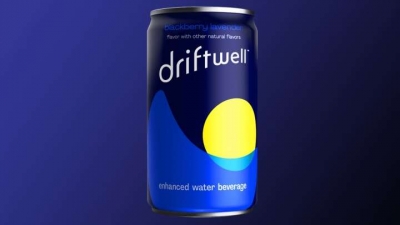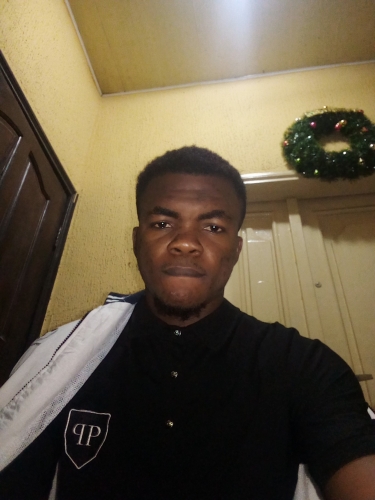News And PoliticsArts And EducationCommunications And EntertainmentHealth And LifestyleSports And FitnessLawRelationship And MarriageMotivationalsVehicles And MobilityOthersFood And KitchenBusiness And MoneyScience And TechnologyReligion And PrinciplesStories And PoemsUSMLE And MedicalsFamily And Holidays
profile/2277IMG_20200116_052733_5.jpg
Fidelity

PepsiCO Launches Drink To Aid Sleep As Consumers Struggles With Stress.
~2.3 mins read

PepsiCo's latest drink, Driftwell
Source: PepsiCo
Doctors and dentists are reporting more cases of cracked teeth and insomnia as the coronavirus pandemic takes a toll on the nation's stress levels.
PepsiCo's latest drink Driftwell is pitching itself as a way to combat the problem.
Pepsi employees came up with an idea for a beverage to help consumers de-stress and relax before bed as part of an internal competition started last year by CEO Ramon Laguarta. The concept won, and the food and beverage giant went to work to make it a reality. Emily Silver, vice president of innovation and capabilities at Pepsi's North American beverages unit, said it is the fastest new product to ever come out of the company. Driftwell will be available nationwide on e-commerce sites in December and in grocery stores by the first quarter of 2021.
"I think we're launching this at a time when there's more consumer interest than there previously was, given everything that's going on from a macro perspective," Silver said.
The enhanced water drink contains 200 miligrams of L-theanine, an amino acid that's found in green and black teas and some mushrooms. A few studies have suggested that the ingredient can improve sleep quality and can help reduce the physical symptoms of stress.
"From a scientific and regulatory perspective, we feel really good about making that claim around L-theanine. Specifically, we have safety in clinical data to prove that it works," Silver said.
Driftwell also contains 10% of the recommended daily value of magnesium. The drink comes in 7.5-ounce mini cans and just one flavor: blackberry lavender. According to Silver, it's the perfect size for hydrating before bedtime without requiring another trip to the bathroom.
Functional water beverages were a $2.97 billion market last year in the U.S., according to data from Euromonitor International, which forecasts that their popularity will boost sales nearly 5% this year. Relaxation drinks are a much smaller category, although their popularity in Japan suggests they could become a part of Americans' everyday routines.
"It's a nascent category, and it's one frankly that we think we can build from a [liquid refreshment beverage] perspective," Silver said.
Smaller companies are making their own relaxation drinks by adding CBD to sparkling water and touting them as a sleep aid or a way to unwind, although little research has been done to back up those claims. Those companies are doing this despite the Food and Drug Administration prohibiting adding the cannabis compound to food and drinks, and large corporations like Pepsi have avoided any potential regulatory snafus by sidestepping the ingredient for now.
Shares of Pepsi, which has a market value of $189 billion, are flat so far this year, as of Monday's close.
profile/2277IMG_20200116_052733_5.jpg
Fidelity

Sickle Cell And Chronic Kidney Diseases.
~4.1 mins read
I keep repeating that the way sickle cell affects everyone is different and not worth comparing any two people. Kindly read Mark’s life journey with sickle cell below.
Like most people living with sickle cell disease, I was diagnosed early at eight months. My mum told me my diagnosis was precipitated by diarrhoea with swollen hands and feet which made the doctor think I might be suffering from sickle cell disease and he requested for a genotype test. It came out positive.
Most of my pain episodes were mild growing up as my mum took good care of managing the crises. But she passed on sometime in 2003 when I secured admission into the university and was away from home. Things changed rapidly and I had my first serious crisis when I had a badly managed malaria fever leading to my first hospitalisation. I had my first transfusion as test results showed I was on 9 per cent packed cell volume.
I developed avascular necrosis in my sleep after having my usual siesta sometime in late August 2005 and this saw my introduction to pain killer usage and subsequent addiction. I saw an orthopedic doctor in Kaduna who put me on Ibuprofen tablets to cushion the severe pains I was having. The pain medications worked like magic but the pains always returned with vengeance when the effects of the medication slowed down.
After, I saw another orthopedic doctor in Bauchi who wrote that an x-ray test be done to rightly ascertain what was happening with my leg. By this time, I was limping. When the X-ray results came out, the doctor lifted it up to the sky while looking at it, and I heard the doctor murmured, “Poor boy has got AVN of the hip.†On probing, he explained the femoral head of left hip had collapsed and I might have to have a surgical operation to correct it. He put me on diclofenac tablets to ameliorate the pains.
I began popping pain pills to keep up with my studies in school and other times, I was self-injecting pentazocine injections, to keep up with my studies but my condition grew worse. I contemplated quitting school but for some good friends who took it upon themselves to support me by hiring a motorcycle to take me to and from classes. My grades nose-dived but I managed to complete university education.
I served and got a job almost immediately but couldn’t cope because the stress of the job was much. With the job loss, I went into depression and I began to binge drink alcohol. On a particular day, I was coming home from an induction and I ran into a police friend from the barracks where I was living with an uncle and he took me to the pub. I drank so much alcohol that my blood oxygen depleted and I passed out. I was in a coma for three days and woke up in a hospital bed, vowing not to taste alcohol again. I lied to myself as I was soon back on it. Well, up until I got diagnosed with sickle cell nephropathy (chronic kidney disease).
Sometime in 2015, I got another job and was transferred to Lagos from Abuja where the job was based. The stress of the job plus my incessant usage of pain tablets saw me developing high blood pressure. This was badly managed as I wasn’t told to continue taking blood pressure pills after the hospital admission where it was discovered.
Later I was diagnosed with sickle cell nephropathy. This is another complication of sickle cell that I still manage till date. I’m currently in stage 4 kidney disease and on medications but some of these medicines are too expensive.
Seeing that I developed chronic kidney disease, I knew I had to do away with the pain pills or else it would be disastrous on the already compromised kidney.
I decided to approach the organisation I was working at and fortunately, they reasoned with me, took pity on me and sponsored me for the operation in India.
With the AVN out of the way and the limping as a result of the surgery corrected to the minimum, I’m reasonably good except that I am still currently in stage 4 kidney disease. I have remained unmarried, even though I have a caring and compatible partner genotype-wise, because I have remained skeptical on taking the serious decisions of getting married for fears of having to spend a lot in management of my failing health and fears adding the burden of marriage to my already huge task of managing myself. I am on a lot of management medications and some of these medications are too expensive.
For instance, I’m on erythropoietin which costs between 10,000 and N13,000 a dose in pharmacies and must be taken four times a week. I’m also on deferasirox tablets for iron chelator which cost between 48,000 and N60,000 per pack. I use Erythropoietin injections as substitute for my kidneys, which are unable to produce this hormone naturally as it used to and hydroxyurea to reduce the rate of my hemolysis and boost fetal hemoglobin. I use deferasirox asunra to remove high iron from my body to avoid more complications. Failure to take these medicines could see me deteriorate rapidly and doctors might have to ask me to consider dialysis as my creatinine keeps shooting with every clinical test.
I presently see my doctor’s (nephrologist and hematologist) every month and I realised I needed to share my story so that the few percentage of sickle cell patients who suffer from these complications (I’ve met few) will know that they’re not alone.
For a country with the highest rate of sufferers worldwide, the Nigeria government needs to take our health challenges seriously and come to the aid of patients by subsidising the tablets, treatments, and surgeries patients have to go through in life.
Advertisement

Link socials
Matches
Loading...
